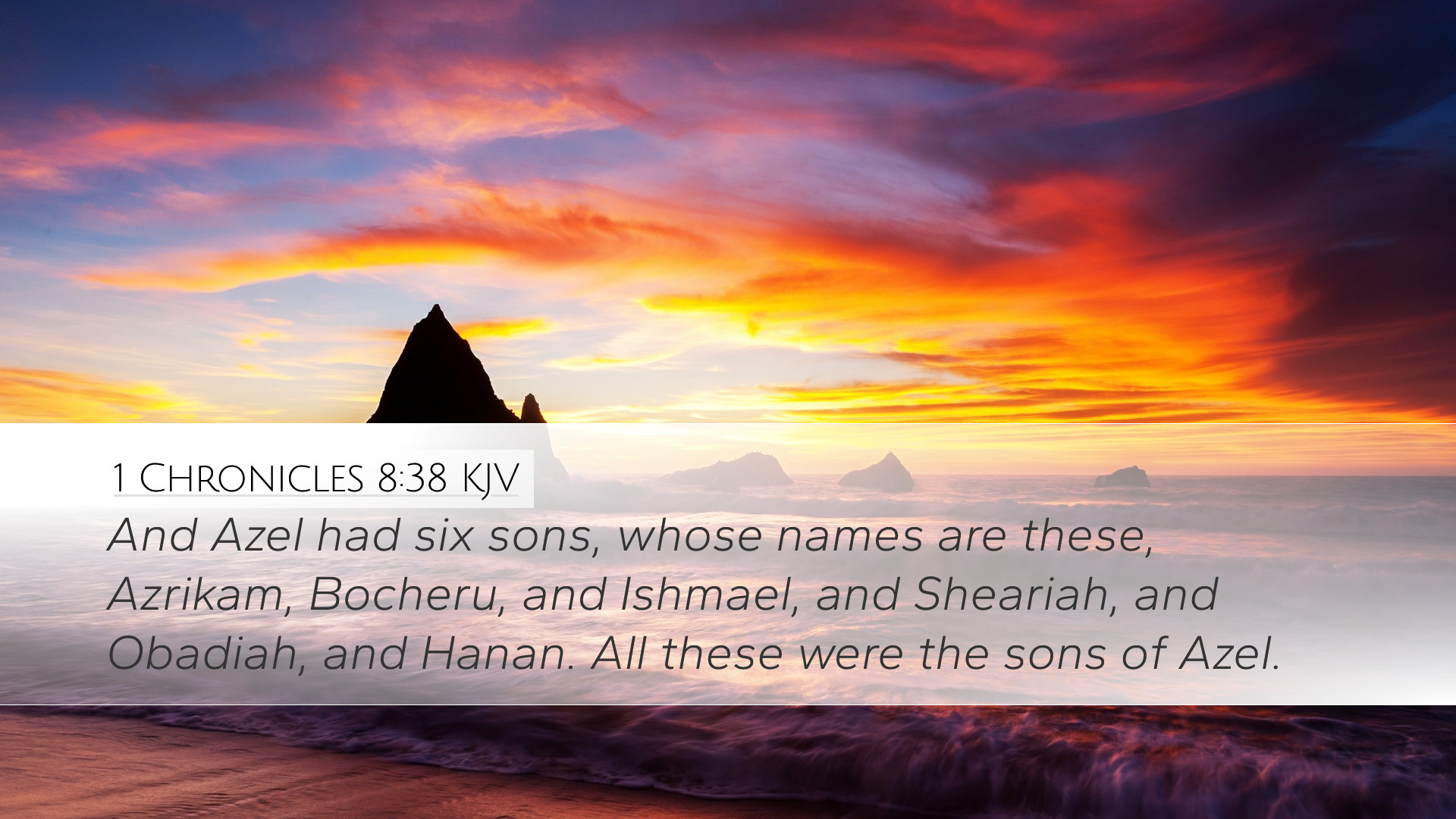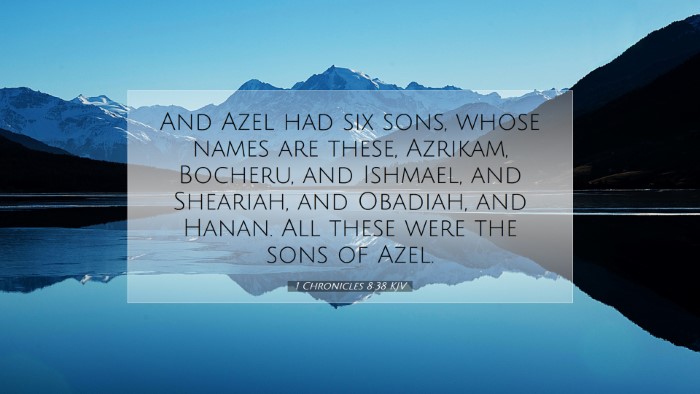Commentary on 1 Chronicles 8:38
Bible Verse: 1 Chronicles 8:38 - "And the son of Uzziah, was the son of Abdeel, the son of Kallai."
Introduction
This passage resides within a genealogical context that is significant to the historical narratives of the Scriptures. It provides insights into the lineage of the tribe of Benjamin, highlighting key individuals and emphasizing the value of ancestry in the biblical narrative.
Contextual Background
The genealogies in the book of Chronicles serve multiple purposes: they affirm God’s covenant with Israel, establish legitimacy, and chronicle heritage. In understanding 1 Chronicles 8:38, it is crucial to consider the broader genealogical context from the preceding verses.
Hebrew Roots and Terms
Scholarly analysis indicates that the names mentioned hold historical significance. The term "Uzziah" can be traced to different individuals in biblical texts, and each carries its own historical implications. This trend is echoed throughout genealogies, where names denote various characteristics or historical contexts.
Commentary Insights
Using perspectives from renowned commentators, we can glean deeper insights into the verse:
Matthew Henry's Perspective
Matthew Henry emphasizes the importance of genealogy in recognizing the faithfulness of God in preserving His people. He notes that such lists are not mere records but serve as reminders of God’s promises fulfilled through generations.
- Faithfulness: Henry suggests that this lineage illustrates the continuity of God's covenant with the house of Israel, reinforcing the theme of divine faithfulness throughout history.
- Covenant Connection: He underscores how these genealogies link the temporal to the eternal, demonstrating the faithful lineage God preserves for His purposes.
Albert Barnes' Insights
Albert Barnes brings to light the historical significance of the individuals named in this passage. He discusses the role these men played in the tribe of Benjamin and the importance of their inclusion in the Chronicles:
- Tribal Identity: Barnes illustrates that knowing one’s genealogy was crucial for tribal identity and inheritance rights. This verse affirms the importance of belonging to the tribe.
- Sacred Record: He notes that every individual listed contributes to the larger narrative of Israel’s history and God’s unwavering commitment to His chosen people.
Adam Clarke's Contributions
Adam Clarke provides a detailed analysis of the names within this verse, suggesting that each name has implications regarding the spiritual or moral qualities of the individuals:
- Name Significance: Clarke explores the etymology and meaning behind each name mentioned, providing a theological reflection on their implications for understanding God’s work through each generation.
- Lessons Learned: He posits that from genealogies, believers can draw lessons about their own identity in Christ and the importance of spiritual heritage.
Theological Implications
Engaging with this verse offers rich theological implications for various audiences:
- Pastors: The genealogical lineage serves as a reminder of God’s faithfulness and providence. Pastors can encourage their congregations to appreciate their spiritual heritage.
- Students: For students of the Bible, this verse emphasizes the importance of contextual study and understanding how genealogies fit within the broader narrative of Scripture.
- Theologians: The genealogies prompt deeper theological questions about covenant, identity, and God’s ongoing relationship with His people.
- Bible Scholars: Scholars are challenged to evaluate the historical and cultural significance of biblical genealogies in shaping our understanding of scripture.
Conclusion
1 Chronicles 8:38, while appearing as a simple genealogical record, holds profound insights into God’s faithfulness and the importance of heritage. Through careful consideration of the insights provided by Matthew Henry, Albert Barnes, and Adam Clarke, one can uncover layers of meaning that speak to the continuity of God's promises through generations. This verse, though nestled within a list of names, serves as a testament to the unfolding narrative of salvation and divine fidelity.


